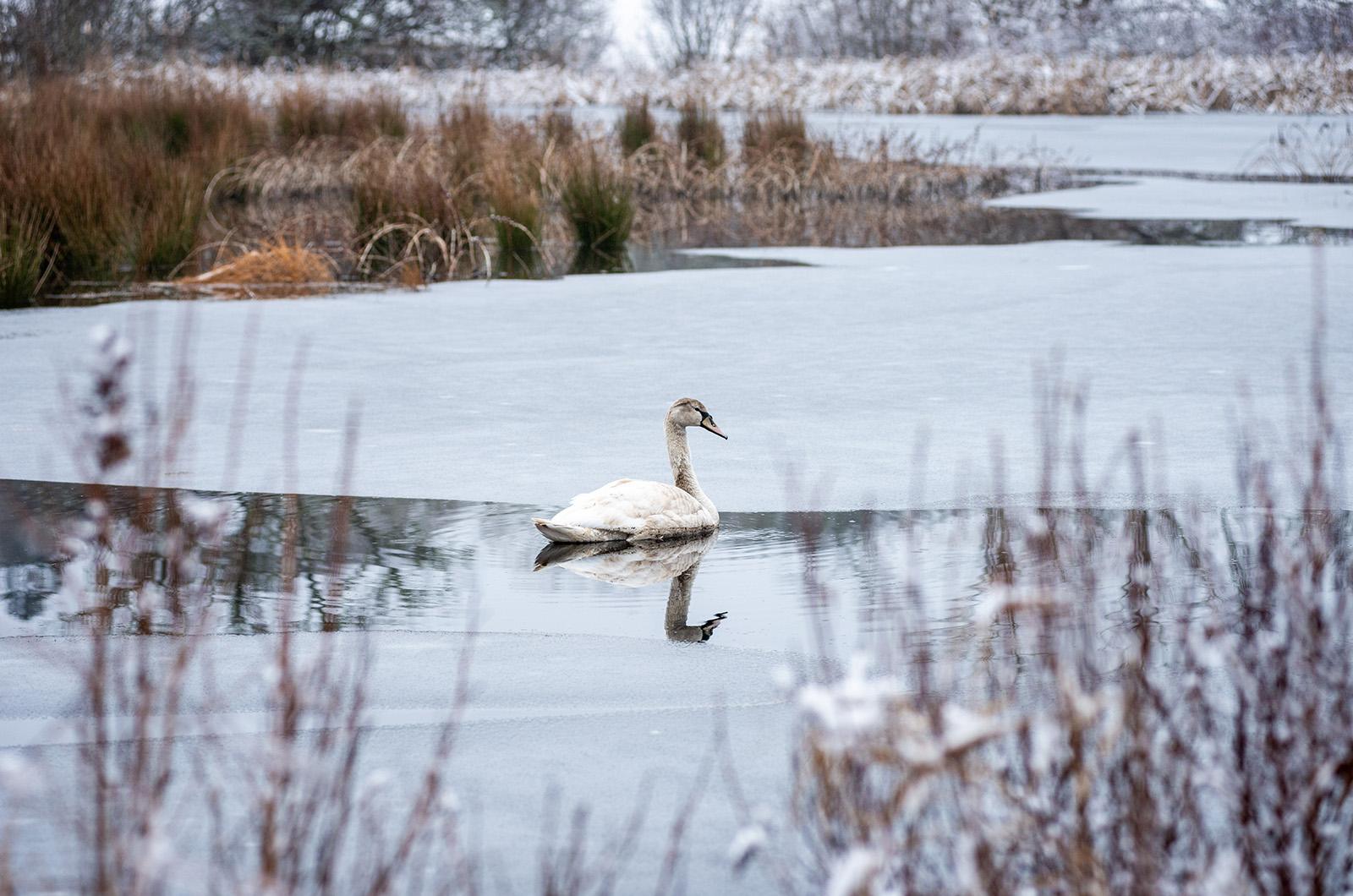A swan, on Old Mill Pond, is hurting, or so it seems to me. The swan is dirty, or seems so at first glance, feathers not white but dreary gray.
The swan is tired, forlorn, it seems to human eyes, its graceful neck limp and drooping.
And the swan, I cannot help but think, is lonely in the pond — it is the only swan there, and has been for months, while slow ice rings the water’s edge.
Swans mate for life; this is well known. One cannot help to read this fact into the situation: did this swan lose his partner?
I am not alone in these questions, unfounded as they may be. Many have noticed the solitary swan on the Mill Pond these days, and together we have speculated on the bird’s grief. Perhaps we are simply projecting human feelings with this speculation, but then again how could we not. It is January now, the bottom of the month, dark and cold, and the Island is as close to empty as it will ever be.
If the swan is lonely, then it is not alone. Many of us are, too.
There is some comfort, though, in analogy to the animal world, camaraderie among creatures whose problems aren’t that different, after all. The birds for me, are more resonant than the rest.
I recall, in spring of last year, another moment of resonance. It was just after my flock of chickens had gone from five to four, when Georgie was devoured by an unknown culprit, an event that brought me lower than I care to admit.
Weeks later, a bracing spring storm hit the Island, but during a moment of pause in the rain, I went to the woods by my yard to see a bird that appeared there.
It was not, it turned out, just one bird, but a family, a mother duck and her many yellow ducklings, huddled underneath her, retreated from pond to forest for respite from the chop.
The duck was not afraid of me, no matter how close I got. It felt like nature spoke that day, of balance and of will.
If life is lonely, often, here, then life goes on as well.







Comments (8)
Comments
Comment policy »